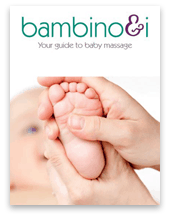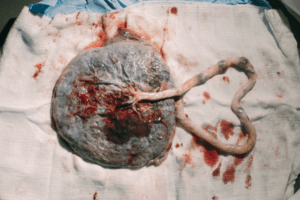
Many people believe that eating your placenta after giving birth brings a multitude of health benefits. While some of you may think this sounds disgusting, others swear by it. Mums have even been known to add their placenta to pizzas and lasagnes! But the most common form of ingestion is via capsules. This is called Placental Encapsulation and involves your placenta being dried, or steamed, and ground into a powdered form and added to capsules for consumption.
The placenta is a temporary organ in your body that surrounds the foetus in the womb and provides oxygen and essential nutrients to baby during pregnancy, as well as removing waste. It is pushed from the uterus shortly after birth.
Placentophagy, or placenta-eating, has taken place for centuries in many countries and Placental Encapsulation is commonly practised in Traditional Chinese Medicine. The placenta produces enough pills for up to 60 days. In fact, some women save their pills for times of hormonal imbalance, such as the menopause, or to ease pre-menstrual tension.
What are the benefits of eating your placenta?
Traditional and holistic medical customs and many women who have tried it, suggest the following benefits:
Hormonal balance
Consuming your placenta post-birth is thought to increase CRH, a stress-reducing hormone. It is also thought to increase the hormone Oxytocin. Known as the feel-good hormone, Oxytocin, helps the uterus return to its normal size and stabilises your mood. It also encourages the bond between you and baby.
Decrease in baby blues and post-natal depression
‘Baby blues’ is now recognised as a symptom of birth, and shortly after giving birth, mums can often feel sad, emotional and anxious. Sometimes, this can lead to a more severe post-natal depression. Many new mums swear by Placental Encapsulation as a way of easing the symptoms of post-natal depression: it has been suggested that many of the symptoms of post-natal depression are linked to a lack of essential nutrients, which can be found in the placenta. These include iron, vitamin B6 and hormones such as CRH. However, this hasn’t been scientifically proven, and if you have severe post-natal depression, you should talk to your doctor or midwife.
Restored iron levels
Iron levels in your body often fall after pregnancy due to sharing with baby, and through loss of blood during childbirth. Anaemia can be a common problem, and iron deficiency can cause insufficient milk syndrome, urinary tract infections, irritability, post-natal depression and a general feeling of tiredness and no energy. The placenta is thought to contain high levels of iron, and therefore it is thought that by ingesting the placenta shortly after birth, you replenish your iron levels.
Increased milk production
Many women report that their milk ‘comes in’ much quicker and their supply is ample after taking placenta capsules.
What are the risks of Placental Encapsulation?
Since not enough research has been carried out, there is no confirmation of either the benefits or the risks, but always follow the guidelines from the company that has supplied you with the capsules.
It is commonly advised that you should avoid eating the placenta if you have any type of viral or bacterial infection, or if there was any abnormal development of your placenta. It should also be avoided if baby passed meconium before birth.
Storage is another area of risk. Your placenta is effectively like any other raw meat you would buy from a shop or butcher’s, so you should handle it the same way by storing it in a refrigerator, and consuming soon after giving birth.
If you are considering Placental Encapsulation, or consuming your placenta in any other way, always talk to your doctor or midwife about your plans and the risks involved, and be sure to find out about your hospital’s policies.
Due to it’s increasing popularity, there are now many companies who provide the full service for you.






